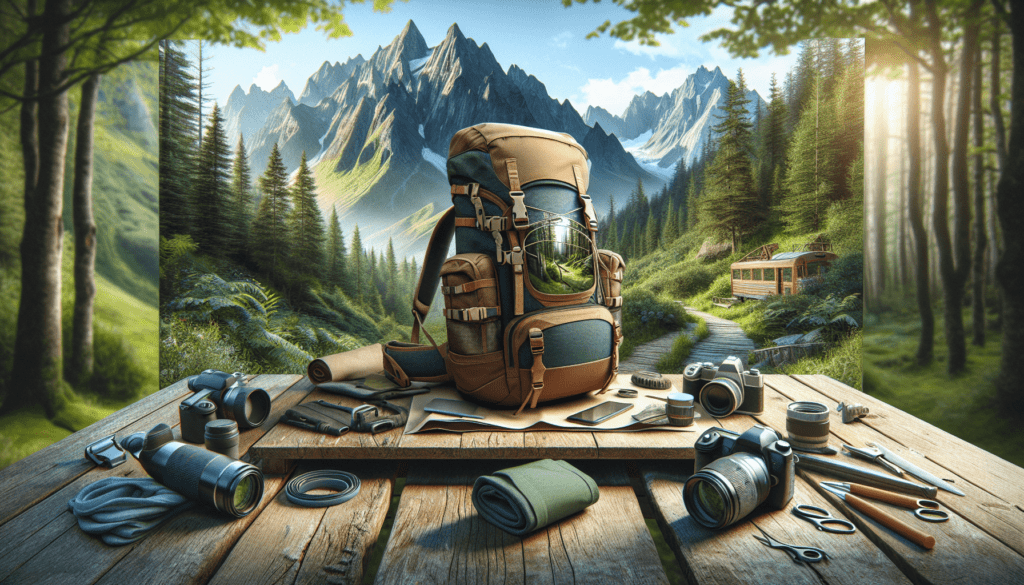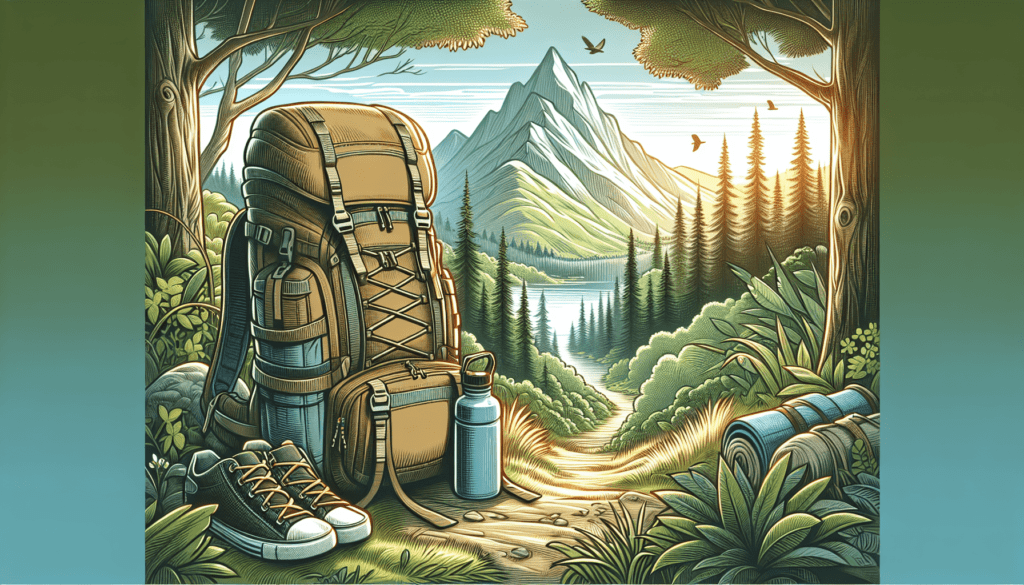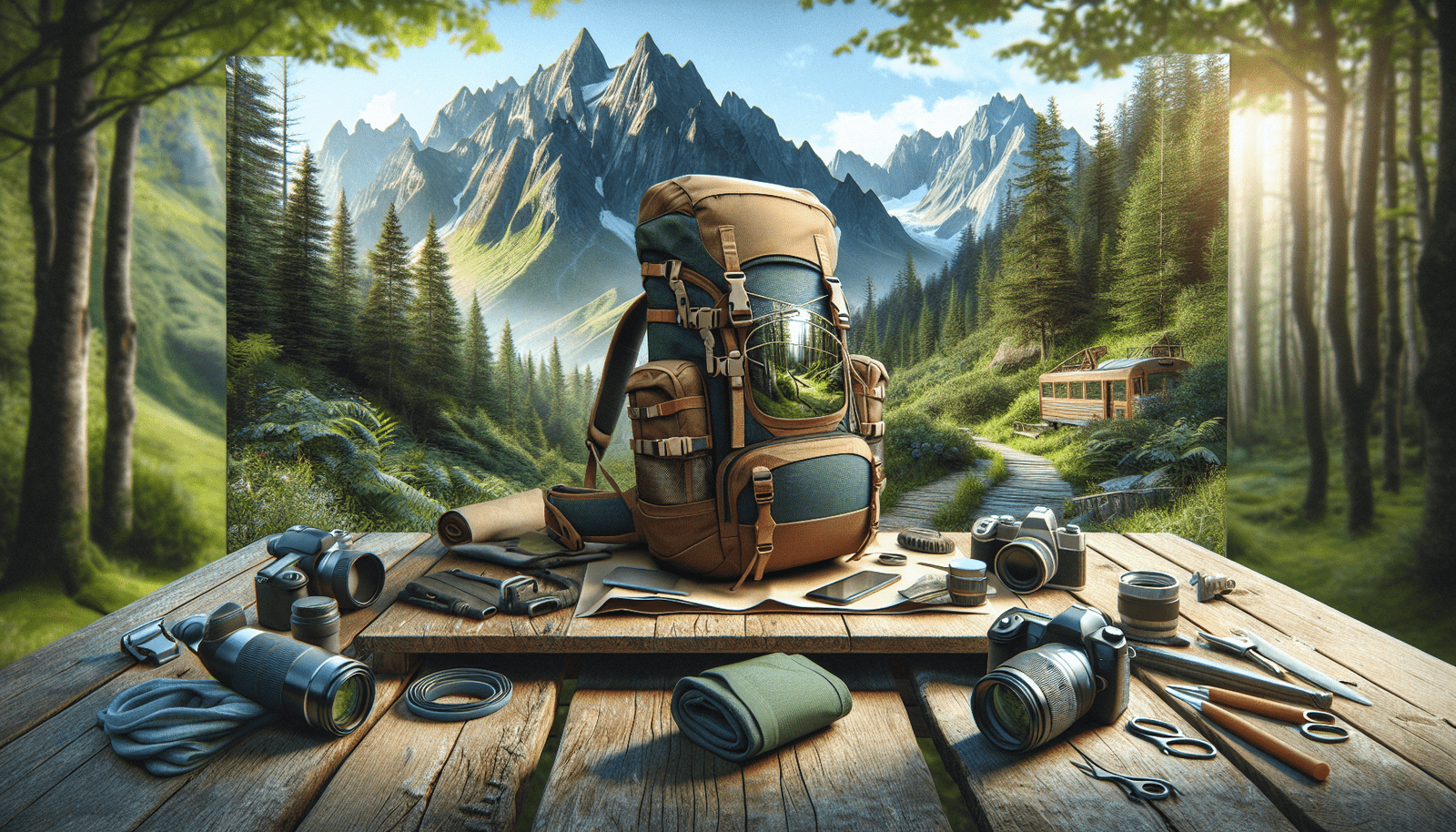Have you ever wondered how to choose the right backpack size for your hiking adventure? Hiking can be an exhilarating and transforming experience, but the type of backpack you select can make or break your trip. Choosing the correct backpack size ensures that you carry all the essentials without overburdening yourself.
Understanding Backpack Volume
The volume of a backpack is measured in liters and indicates how much it can hold. This measurement helps you understand whether a particular backpack can accommodate the items you plan to carry on your hike.
Daypacks (Up to 35 Liters)
Daypacks are designed for short hikes or adventures that last less than a day. These backpacks typically hold 15 to 35 liters. They are compact and allow you to carry essentials like water, snacks, and a light jacket.
Medium Backpacks (35-50 Liters)
Medium backpacks are ideal for overnight hikes or day trips that require additional gear. With a capacity of 35 to 50 liters, these backpacks can hold extra clothing, a sleeping bag, and more food.
Large Backpacks (50-70 Liters)
Large backpacks are best for multi-day hiking trips. Ranging from 50 to 70 liters, these backpacks offer ample space for all your gear, including a tent, cooking equipment, and multiple changes of clothes.
Expedition Backpacks (70+ Liters)
Expedition backpacks are for extended backcountry trips. They can hold more than 70 liters, providing enough room for all your needs on long, unsupported hikes. These are often used for trips lasting a week or more.
Your Hiking Duration
To choose the right backpack size, you need to consider how long you’ll be hiking. Let’s break down which backpack size is suitable based on the duration of your hike.
| Duration | Recommended Capacity |
|---|---|
| Less than a day | Up to 35 liters |
| One to two days | 35-50 liters |
| Three to five days | 50-70 liters |
| More than five days | 70+ liters |

Types of Gear
The type of gear you need to carry also influences the size of your backpack. Here’s a list to help you strategize:
Basic Essentials
- Water: Hydration bladders or bottles
- Food: Non-perishable and easy-to-carry snacks
- Clothing: Layered clothing for changing weather conditions
- First-Aid Kit: Basic medical supplies
- Navigation: Map, compass, or GPS
Additional Gear for Longer Trips
- Sleeping Bag: Essential for overnight stays
- Tent: Compact and lightweight options are available
- Cooking Equipment: Portable stove, fuel, and cooking utensils
- Extra Clothing: Additional layers for nighttime or varying weather
- Footwear: Extra socks, and possibly camp shoes
Specialized Equipment
- Climbing Gear: If your hike includes technical climbs
- Photography Gear: For capturing the stunning scenery
- Fishing Equipment: If your destination includes fishing opportunities
Fit and Comfort
A backpack that doesn’t fit properly can cause discomfort and even injury. Here are some aspects to consider:
Torso Length
Measuring your torso length helps you find the right backpack size. Most backpacks come with adjustable torso lengths, but it’s crucial to get a close match.
- Short Torso: Less than 16 inches
- Medium Torso: 16-20 inches
- Long Torso: More than 20 inches
Hip Belt
Most of the backpack’s weight should rest on your hips. Look for a hip belt that fits snugly but is comfortable and adjustable.
Shoulder Straps
Shoulder straps should be well-padded and adjustable. Make sure they don’t dig into your shoulders.

Features to Consider
When choosing a backpack, look for features that enhance its usability and comfort.
Hydration Compatibility
Some backpacks come with hydration bladder compatibility, making it easier to stay hydrated on the go.
Pockets and Compartments
Multiple pockets and compartments help keep you organized. Look for side pockets, front pockets, and internal compartments.
Ventilation
Ventilated back panels can keep you cooler during the hike.
Weight
Lighter backpacks are generally more comfortable but may offer fewer features or less durability. Balance weight with functionality according to your needs.
Weather Considerations
The climate you’ll be hiking in can also impact your backpack choice. Here’s how different weather conditions might influence what you carry:
Hot Weather
In hot climates, you’ll need more water, lightweight clothing, and sunscreen. A smaller daypack might suffice for shorter hikes.
Cold Weather
Cold weather requires extra layers, a heavier sleeping bag, and more food, necessitating a larger backpack.
Rainy Weather
Rain covers or waterproof materials are essential to keep your gear dry. Ensure the backpack has suitable protection.
Packing Tips
Once you’ve chosen the right backpack, knowing how to pack it can make your hike easier and more enjoyable.
Balance Your Load
Evenly distribute the weight to avoid straining your back. Heavy items should be carried close to your spine and at the middle of your back.
Use Compression Straps
Use compression straps to minimize the bulk and stabilize the load.
Accessibility
Pack items you’ll need frequently, like snacks and water, in easily accessible pockets.
Final Considerations
Budget
Your budget can impact the type of backpack you purchase. Sometimes, investing a bit more in quality is worthwhile. High-quality backpacks tend to last longer and offer better comfort.
Try Before You Buy
Whenever possible, try the backpack on before making a purchase. Load it with weight to see how it feels when fully packed.
Brand Reputation
Opt for reputable brands known for their durability and comfort. Reading reviews can provide additional insights into which packs are most reliable.
Maintenance
A good hiking backpack can last many years with proper care. Follow the manufacturer’s guidelines to clean and store your backpack.
Conclusion
Selecting the right backpack size for your hiking adventure doesn’t have to be a daunting task. By understanding your needs, considering your hiking duration, evaluating gear requirements, and noting features and comfort, you can make a well-informed decision. Remember, the right backpack will enhance your hiking experience, making your adventures more enjoyable and less strenuous. So, take your time to find the best fit for you and get ready to hit the trails with confidence.
Support us! Wilderness gear Pro may earn a small commission from affiliate links in this article. Learn More

